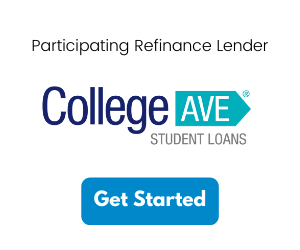Many people find job interviews challenging and might not have a natural knack for impressing hiring managers. If this sounds like you, don't worry—you're in good company. A smart way to prepare is by practicing your interview a few days ahead. Ask a friend or family member to act as the interviewer, which can help you get ready and ensure you don't enter the interview unprepared.
5 Job Interview Tips
Give your friend or relative sample interview questions and request they come up with a few on their own you’re not familiar with. Record the practice interviews to get insight into your body language, professional demeanor, and other aspects.
It would be good to keep these five things in mind as you prepare for your practice and real job interviews:
1. Research the Employer and Common Interview Questions
Many interviewers ask applicants about their background, how they heard about the position, why they think they are a good fit, and the type of work environment they prefer. Look up typical interview questions and good ways to answer them. If you have no work experience, use volunteer, internship, and school experiences to inform your answers.
Also, research the employer. Know at least the basics: What the employer does, who it serves, what products or services it offers, and how you would fit in.
2. Be Yourself (Within Reason)
In job interviews, some people tend to project a personality or attitude that doesn't align with their true selves. They may use big words unnecessarily or suppress their sense of humor, assuming it's inappropriate.
In reality, various types of humor can be suitable for job interviews, and the use of big words can make applicants appear pretentious.
It's important to be authentic. If you're naturally warm, kind, and smile a lot, don't try to portray a brisk, business like vibe just because you think it's what the company wants. After all, an employer might feel let down if they hire you and your personality drastically changes after the interview.
Pretending to be someone you're not can be challenging. Instead, be yourself while maintaining professionalism. Avoid using inappropriate language, making offensive jokes, or excessively checking your phone, even if these aspects reflect your personal self.
3. Pay Attention to Body Language
Your expressions, posture, and hand positions could make the difference between you getting hired and being passed over. Elements to focus on include these.
- Sitting up straight rather than slouching
- Leaning forward just a bit when interviewers ask questions and to change your position so you don’t sit stiff
- Maintaining eye contact with interviewers to convey attention and interest
- Smiling at least a few times where appropriate
- Folding your hands one over the other, interlacing your fingers, or resting a few fingertips together. Sit on your hands if you're doing an online video interview and tend to fidget
4. Make Sure You Won’t Be Distracted
To maintain professionalism during a job interview, it is recommended to keep your smartphone switched off or, at the very least, disable notifications. Answering a phone call or even glancing at your phone can create a negative impression. Even excusing yourself from the room to take a call reflects poorly on you.
In addition to avoiding smartphone distractions, hunger, thirst, and lack of sleep can also hinder your focus. Prioritize a good night's sleep, have a snack or small meal to keep your energy levels up, and stay hydrated without overdoing it to avoid frequent bathroom breaks.
5. Speak Positively
An initial job interview is not the time to complain about your current job, pay, benefits, or the people in your life. For example, avoid talking about a roommate who left you in the lurch with the bills. Keep your focus on the job at hand rather than talking about other jobs you’re hoping to get.
Lastly, do not inform interviewers that you need to go on vacation right after starting. That pretty much disqualifies you from the list of candidates. If your vacation is non-negotiable, a better time to bring it up would be after you get a job offer. The employer could probably delay your start date.
A little preparation helps you conduct an interview that impresses hiring managers. Be yourself, make eye contact, minimize distractions, and remain positive.









